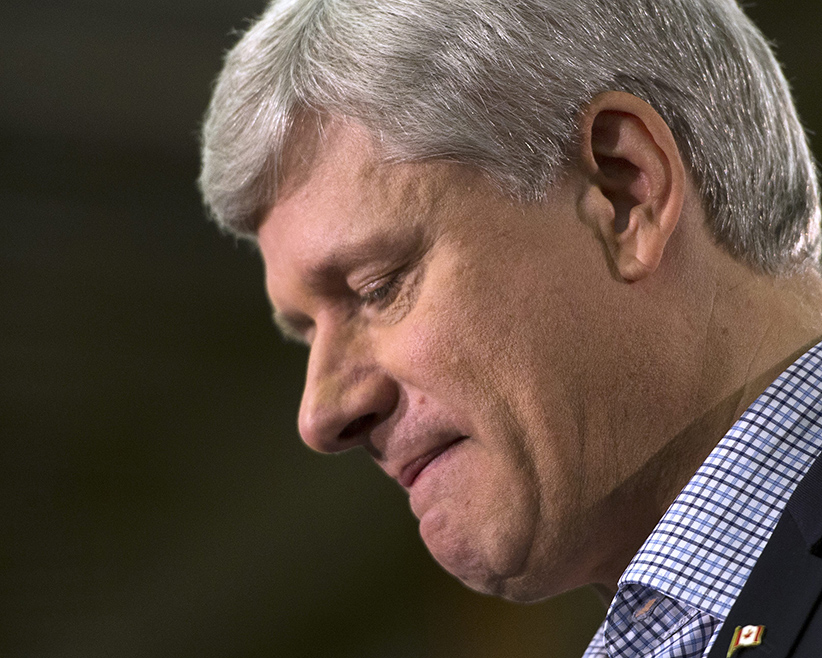Conservative caucus unrest mounts
Defeated MPs aren’t invited to the post-election caucus meeting. Trouble brewing.
(Ryan Remiorz/CP)
Share

In a sign of increasingly heavy-handed attempts to quell internal Conservative-party unrest following the defeat of Stephen Harper’s government, the party is planning a post-election caucus meeting to which defeated candidates would not be invited.
This is a highly unusual step for any party to take. As a rule, both newly elected and returning MPs, and incumbent MPs who ran but were defeated, are invited to the first meeting after caucus. Defeated MPs still have flight privileges for a short time after an election, so they can return to Ottawa to clean out their offices. As a result, they are usually able to come back for one final caucus meeting with their former colleagues.
Those meetings can sometimes get hot for a leader, and a party apparatus, who failed to secure re-election. Defeated MPs have just spent months knocking on doors, and become conduits for the anger they heard from voters. It is apparently for that reason that Prime Minister Stephen Harper’s allies in the party leadership, including party president John Walsh and Harper’s chief of staff, Ray Novak, are not inviting defeated candidates for the first post-election caucus meeting, apparently in mid-November: They want to contain a rising tide of anger against Harper and his campaign.
A senior member of the Conservative caucus said several MPs are “strongly fighting” the move to bar defeated incumbents. But post-election disarray in the party—symbolized by the election-night defeat of John Duncan, the caucus whip, whose office would normally organize such meetings—has made it difficult to push back against the plan.
“Whoever is making this decision doesn’t understand team,” the senior member of the Conservative caucus said, on condition of anonymity. They may not even understand tactics: Embittered former MPs, deprived of a chance to vent, may take their anger to local newspapers, as some have already done since the election.
Senior Conservative sources said there is already growing concern that either Harper, or people who were close to him while he was Prime Minister, are seeking to organize his succession. Some members of the party’s national council are calling for a leadership election as early as May 2016, which would give an advantage to members who are already well-organized. The member who most closely fits that description is Jason Kenney.
Kenney will have competition. Simcoe–Grey MP Kellie Leitch, not one of the most prominent members of the former government, is said to have an organization already in place, including Andy Pringle, who was chief of staff to former Ontario Progressive Conservative leader John Tory, and pollsters Nick Kouvalis and Richard Ciano.
The attempt to shield the Conservative party leadership from criticism is consistent with patterns that set in during the campaign itself. Sources said Novak was so defensive of Harper that he angrily rejected reports that the leader had become a personal liability for the Conservatives on the campaign trail. And there is growing concern in the party over Harper’s apparent plan to stay on as an MP.
“We can’t have the frank discussions that are necessary for renewal if Mr. Harper is there in the room, like Diefenbaker after he stopped being Tory leader,” one MP said.